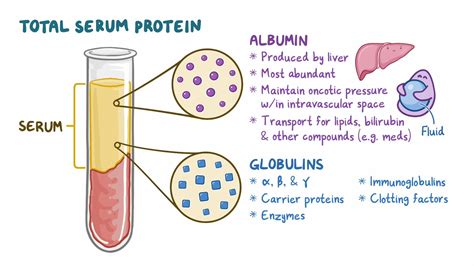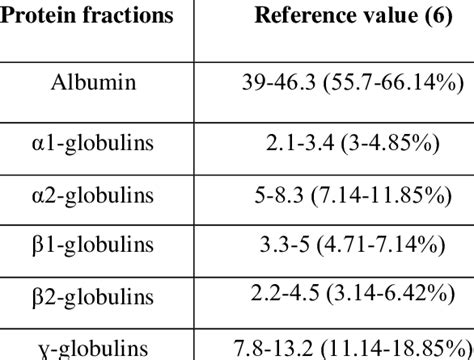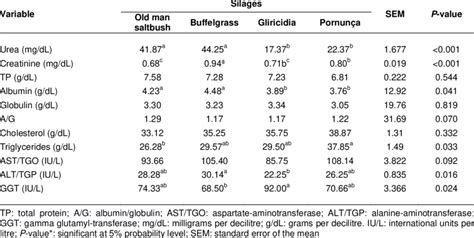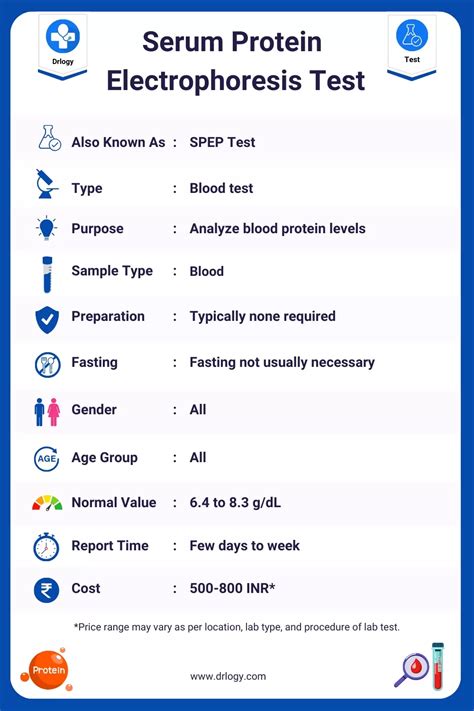Intro
Learn about Protein Serum Normal Range, including globulin and albumin levels, to understand lab results and diagnose conditions like hypoproteinemia or hyperproteinemia, and discover the importance of protein serum tests.
The importance of understanding protein serum normal range cannot be overstated, as it plays a crucial role in maintaining overall health and detecting potential health issues. Proteins are essential molecules found in the blood, and their levels can indicate various conditions, from nutritional deficiencies to chronic diseases. In this article, we will delve into the world of protein serum, exploring its significance, normal ranges, and what abnormal levels might signify.
Protein serum tests are commonly used to assess liver and kidney function, as these organs are responsible for producing and filtering proteins. Abnormal protein levels can be indicative of underlying issues, such as liver disease, kidney disease, or certain types of cancer. Moreover, protein serum tests can help monitor the effectiveness of treatments and detect potential complications early on. With the increasing prevalence of chronic diseases, understanding protein serum normal range is more important than ever.
The human body relies on proteins to perform various functions, from building and repairing tissues to producing enzymes and hormones. There are numerous types of proteins, each with unique functions and normal ranges. For instance, albumin is a protein that helps maintain fluid balance, while globulins play a crucial role in the immune system. Understanding the normal ranges for these proteins is essential for accurate diagnosis and treatment. In the following sections, we will explore the different types of proteins, their normal ranges, and what abnormal levels might indicate.
Introduction to Protein Serum

Protein serum refers to the liquid portion of blood that contains proteins and other substances. The normal range for protein serum varies depending on the type of protein, age, and laboratory methods used. Generally, the normal range for total protein is between 6.4 and 8.3 grams per deciliter (g/dL). However, this range can vary slightly depending on the laboratory and the specific test used. It is essential to consult with a healthcare professional to understand the normal range for a specific protein and what the results might indicate.
Types of Proteins in Serum
There are several types of proteins found in serum, each with unique functions and normal ranges. Some of the most common types of proteins include: * Albumin: 3.5-5.5 g/dL * Globulins: 2.5-3.5 g/dL * Fibrinogen: 200-400 mg/dL * Immunoglobulins: 500-1500 mg/dL Understanding the normal ranges for these proteins is crucial for accurate diagnosis and treatment. For instance, low albumin levels can indicate liver disease or malnutrition, while high globulin levels can be indicative of chronic inflammation or infection.Normal Range for Protein Serum

The normal range for protein serum varies depending on the type of protein, age, and laboratory methods used. Generally, the normal range for total protein is between 6.4 and 8.3 g/dL. However, this range can vary slightly depending on the laboratory and the specific test used. It is essential to consult with a healthcare professional to understand the normal range for a specific protein and what the results might indicate.
Factors Affecting Protein Serum Levels
Several factors can affect protein serum levels, including: * Age: Protein levels tend to decrease with age * Sex: Protein levels can vary between males and females * Nutrition: Malnutrition or starvation can affect protein levels * Liver disease: Liver disease can affect protein production and filtration * Kidney disease: Kidney disease can affect protein filtration and excretion Understanding these factors is crucial for accurate interpretation of protein serum test results.Abnormal Protein Serum Levels

Abnormal protein serum levels can indicate various health issues, from nutritional deficiencies to chronic diseases. For instance:
- Low albumin levels can indicate liver disease, malnutrition, or nephrotic syndrome
- High globulin levels can indicate chronic inflammation, infection, or multiple myeloma
- Low immunoglobulin levels can indicate immunodeficiency or autoimmune disorders Understanding the causes and consequences of abnormal protein serum levels is essential for accurate diagnosis and treatment.
Clinical Significance of Protein Serum Tests
Protein serum tests have numerous clinical applications, including: * Diagnosing and monitoring liver and kidney disease * Detecting nutritional deficiencies or malnutrition * Monitoring the effectiveness of treatments for chronic diseases * Detecting potential complications or side effects of medications Protein serum tests can provide valuable information about a patient's health, allowing healthcare professionals to make informed decisions about diagnosis, treatment, and management.Interpreting Protein Serum Test Results

Interpreting protein serum test results requires careful consideration of various factors, including:
- Normal ranges for the specific protein
- Age, sex, and nutritional status of the patient
- Presence of underlying health conditions or diseases
- Medications or treatments that may affect protein levels Healthcare professionals must carefully evaluate the results in the context of the patient's overall health and medical history.
Limitations and Potential Errors
Protein serum tests are not without limitations and potential errors. Some of the common limitations and errors include: * Laboratory variability: Different laboratories may have different normal ranges and testing methods * Sample collection and handling: Improper sample collection and handling can affect test results * Medication interference: Certain medications can affect protein levels or interfere with test results Understanding these limitations and potential errors is essential for accurate interpretation and application of protein serum test results.Conclusion and Future Directions

In conclusion, understanding protein serum normal range is crucial for maintaining overall health and detecting potential health issues. Protein serum tests have numerous clinical applications, from diagnosing and monitoring liver and kidney disease to detecting nutritional deficiencies or malnutrition. However, interpreting protein serum test results requires careful consideration of various factors, including normal ranges, age, sex, and nutritional status of the patient. As research continues to advance, we can expect to see new developments in protein serum testing, including more accurate and reliable testing methods.
What is the normal range for protein serum?
+The normal range for protein serum varies depending on the type of protein, age, and laboratory methods used. Generally, the normal range for total protein is between 6.4 and 8.3 g/dL.
What can abnormal protein serum levels indicate?
+Abnormal protein serum levels can indicate various health issues, from nutritional deficiencies to chronic diseases, such as liver disease, kidney disease, or certain types of cancer.
How are protein serum tests used in clinical practice?
+Protein serum tests are used to diagnose and monitor liver and kidney disease, detect nutritional deficiencies or malnutrition, and monitor the effectiveness of treatments for chronic diseases.
What factors can affect protein serum levels?
+Several factors can affect protein serum levels, including age, sex, nutrition, liver disease, kidney disease, and certain medications.
How can I learn more about protein serum tests and their applications?
+You can learn more about protein serum tests and their applications by consulting with a healthcare professional or searching for reputable online resources, such as the National Institutes of Health or the American Association for Clinical Chemistry.
We invite you to share your thoughts and questions about protein serum normal range in the comments section below. If you found this article informative, please share it with others who may benefit from this information. Together, we can promote a better understanding of protein serum tests and their role in maintaining overall health and well-being.
